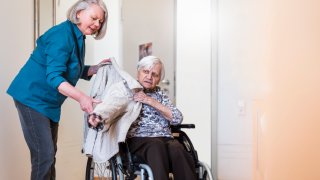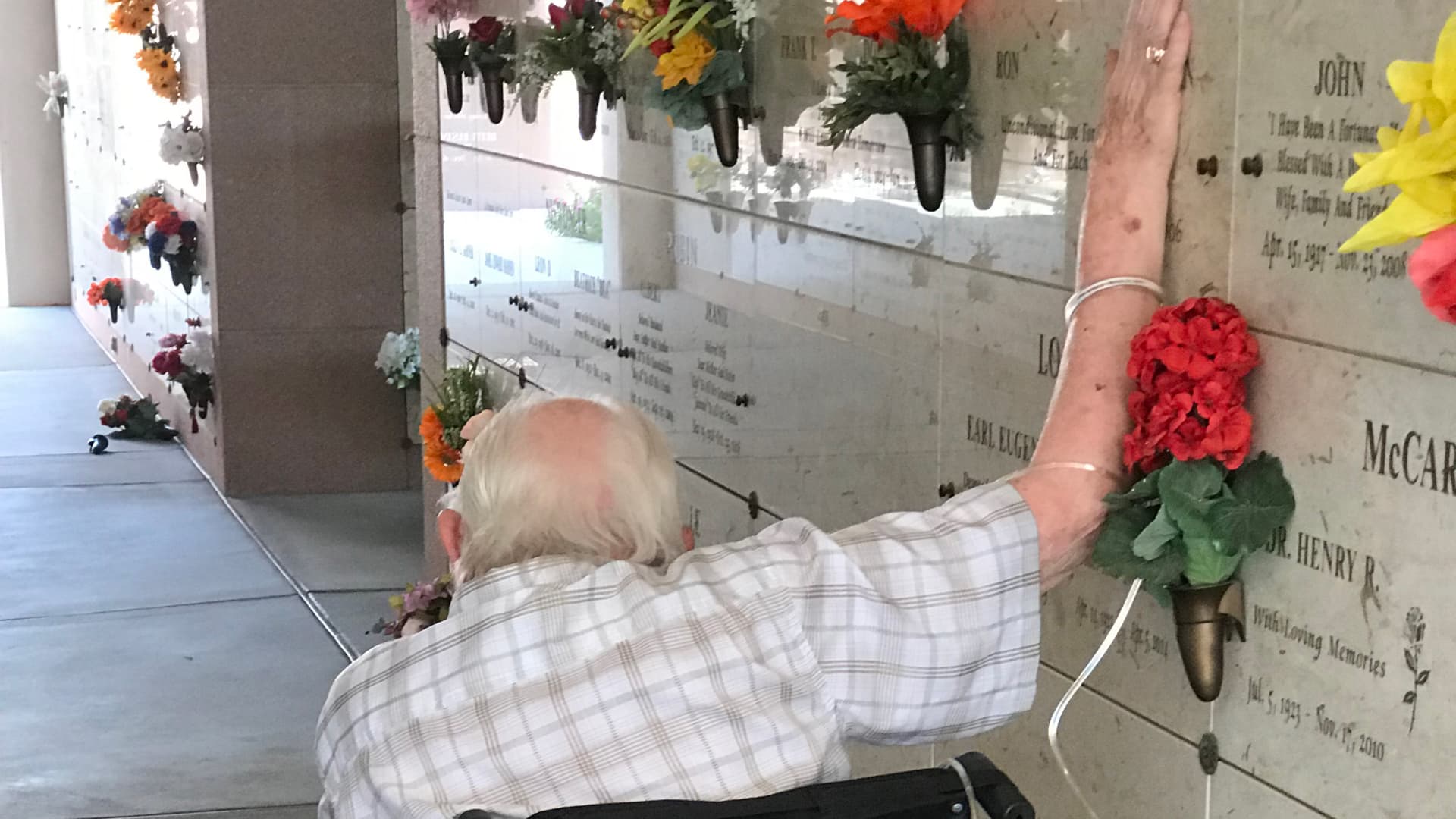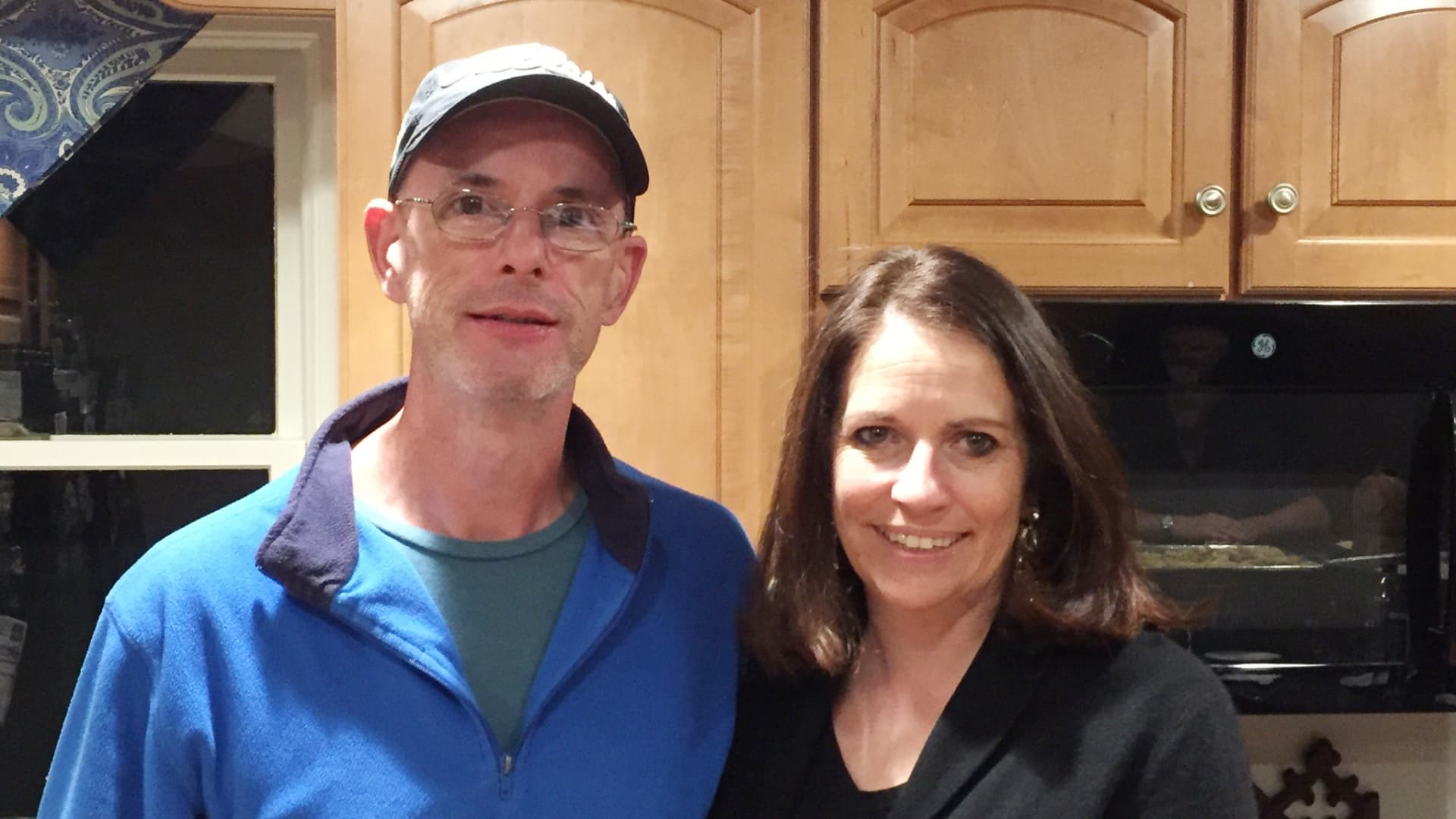

Over the past year, Ellen Minor has been caring for her 93-year-old father in their Covid bubble.
It's been far from easy.
"I can't tell you how close I have come to forcing myself to retire early, which means paying for my own medical insurance," said Minor, a 61-year-old teacher at a California charter school.
Get DFW local news, weather forecasts and entertainment stories to your inbox. Sign up for NBC DFW newsletters.
"I have come very close, with the stress," she said. "I just can't take it."
When the coronavirus pandemic hit, her father, Ronald Terry, was temporarily in a skilled nursing facility, recovering from cardiac surgery. Minor quickly pulled him out and brought him back to their home in Murrieta, California. While Terry needs full-time care, she is only using one overnight aide in order to protect Terry, her husband and herself from the virus. She also teaches remotely during the day while caring for her dad.
Minor is one of 53 million Americans who are caregivers to a family member, friend, or neighbor. Of those, 61% are women.
Money Report
Even before the pandemic, 20% of caregivers reported high financial strain, 20% left bills unpaid and 10% were unable to afford basic expenses like food, according to a May 2020 report by the National Alliance for Caregiving and AARP.
"No one really prepares for caring for an older adult," said Bob Stephen, AARP's vice president for caregiving and health.
"When you do, you don't really think about the financial aspect of it."
Covid has added to that strain: More than 50% have increased their hours spent on family caregiving, and 30% are experiencing more stress, a survey by AARP and S&P Global found.
For Minor, that stress was recently compounded when her father, who is now vaccinated, experienced a sudden decrease in mobility. As a result, Minor and her husband are renovating his bathroom so Terry will be able to navigate the area.
Stories like Minor's are ones that Liz O'Donnell sees all too often in her Facebook community, Working Daughter.

She started the group when she suddenly found herself as caregiver to both her parents in 2014. Her father was diagnosed with Alzheimer's, and her mother with stage 4 ovarian cancer, on the same day. O'Donnell, now 53, was working full-time and had two kids in elementary and middle school. Her late husband, who died in 2019 from pancreatic cancer, was a stay-at-home dad.
"Elder care is so unpredictable. You don't know when you are going to get phone calls and what is going to happen," said O'Donnell, who has since written a book, "Working Daughter: A Guide to Caring for Your Aging Parents While Earning A Living."
"I was convinced I was going to lose my job, maybe my marriage with the stress of it all … and certainly my sanity."
More from Invest in You:
How companies can keep women in the workforce
Single moms hit hardest by gender pay gap
How to manage your money, boost your savings and start investing
Her biggest piece of advice to those caring for aging parents or other adults during such a difficult time: Be more forgiving towards yourself.
"Realize the guilt and stress is misdirected if you are directing it at yourself," O'Donnell said.
In this rapidly aging society, where people are living longer and therefore more likely to develop chronic illnesses, society hasn't kept up about how to care for those people. The result is that it is all falling on family.
Instead of focusing on what you can't do for your parents, think about the fact that you are showing up for them and putting structures in place to help, she said.
On the financial end of things, it helps to get organized and create a budget, said AARP's Stephen. Caregivers spend about $8,000 a year of their own money caring for family members, according to the organization, which has created a financial workbook for family caregivers.
"You want to make sure you are setting your priorities right," he said. That means not dipping into your own retirement savings and putting your future at risk.
Also, check to see what accommodations your employer may be able to give you, like a flexible schedule. There may also be an employee resource group for caregivers that can help you talk with people in the same situation.
For Minor, her main fear is her own health, more so than her job or her retirement readiness.
"I'm more concerned right now that this is working me into such an early grave, that I won't have enough life left to enjoy retirement," she said.
"I am losing my health over this."
SIGN UP: Money 101 is an 8-week learning course to financial freedom, delivered weekly to your inbox.
CHECK OUT: How to make money with creative side hustles, from people who earn thousands on sites like Etsy and Twitch via Grow with Acorns+CNBC.
Disclosure: NBCUniversal and Comcast Ventures are investors in Acorns.






